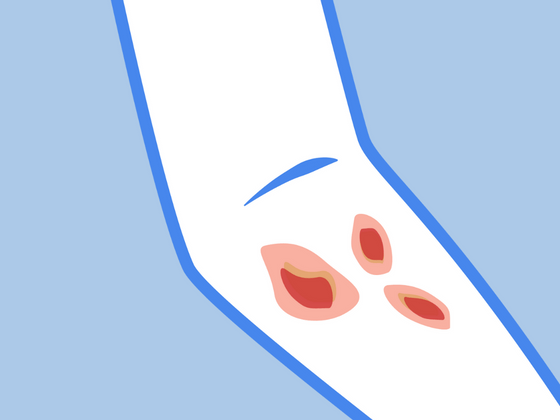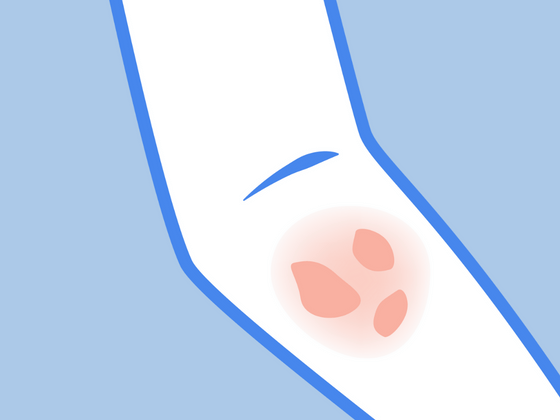Eczema (atopic dermatitis) involves uncomfortable, itchy, inflamed, and sometimes discolored skin. While many people struggle to find long-term solutions for managing their eczema symptoms, research is increasingly pointing to a potential connection between eczema and vitamin D levels, suggesting that maintaining adequate vitamin D might play a role in reducing symptoms and improving skin health.
In this post, we’ll cover:
-
How vitamin D affects the skin and immune system
-
Vitamin D and eczema severity
-
How to get enough vitamin D for eczema management
Read on to see how vitamin D supplementation and nutrition can help with eczema symptoms and skin health.
Understanding Atopic Eczema and the Role of Vitamin D
Atopic eczema is a chronic inflammatory skin condition that causes dry, itchy, and inflamed skin. The exact cause of eczema is complex, involving genetics, environmental factors, and the immune system. However, recent studies are pointing to vitamin D playing a big role in the development of atopic eczema and its severity. For example, people with lower vitamin D levels have a higher risk of getting eczema and severe eczema symptoms.
What is Vitamin D?
Vitamin D is known as the “sunshine vitamin” because our bodies produce it when we are in the sun. It’s important for many aspects of health, including immune system regulation and skin barrier function. Low vitamin D can compromise the skin’s ability to defend against irritants and allergens which can lead to eczema flares.
Vitamin D and the Immune System
The immune system is a big player in eczema development. Research shows that people with atopic eczema have an overactive immune response which leads to inflammation and worsened skin symptoms. Vitamin D deficiency has been linked to this overreaction so maintaining adequate vitamin D levels can help regulate the immune system and reduce inflammation.
How Much Vitamin D Do You Need?
The amount of vitamin D you need can vary depending on age, location, and individual health factors. To determine how much vitamin D you need, you should monitor your blood test results. In general, experts recommend getting at least 600-800 IU (international units) of vitamin D daily, either through sun exposure, vitamin D rich foods like fatty fish, eggs and fortified dairy products, or through vitamin D supplementation.
The Benefits of Vitamin D for Eczema
Multiple studies have shown that people with lower serum vitamin D have worse eczema symptoms. By supplementing or increasing vitamin D through diet, patients report improved eczema symptoms, reduced itchiness, inflammation and dryness. Using a natural eczema cream alongside vitamin D can further support skin barrier function.
A review of many studies also found that vitamin D helps strengthen the skin barrier which is important for people with eczema. A healthy barrier protects the skin from irritants, allergens and bacteria that can worsen eczema. Natural moisturizers like beef tallow cream can help strengthen this protective barrier.
The Role of Zinc and Other Nutrients
Vitamin D is important for skin health but other nutrients like zinc also play a big role in atopic dermatitis. This is because zinc supports immune cells and helps maintain the skin barrier, working with vitamin D to improve outcomes for people with eczema. Discover our Remedywear™ garments made with TENCEL and anti-inflammatory zinc here.
Can Vitamin D Help Treat Eczema?
Vitamin D can’t cure eczema but it can help with symptoms. Here’s how you can increase your vitamin D:
1. Supplementation
Taking vitamin D supplements has been shown to reduce eczema severity, with many patients reporting fewer flares and less inflammation. While this sounds promising, more research is needed to determine the right dosage for treating eczema. Talk to your doctor to find out if a vitamin D supplement is for you.
2. Sun Exposure
Spending time in the sun is a natural way to boost your body’s vitamin D. However, too much exposure can cause skin damage so it's important to aim for moderate safe sun exposure. As little as 10-15 minutes a few times a week is enough to support your skin without overexposure.
3. Vitamin D-Rich Foods
Adding vitamin D rich foods to your diet can also help maintain healthy levels. Foods like salmon, fortified cereals, mushrooms and eggs are great options to naturally boost your vitamin D, supporting both your skin and immune system.
Manage your Eczema Today
While vitamin D can't cure eczema, it can help manage your eczema symptoms. By increasing your vitamin D through supplementation, safe sun exposure, and a diet rich in vitamin D foods you can reduce flares and improve your skin's health.








